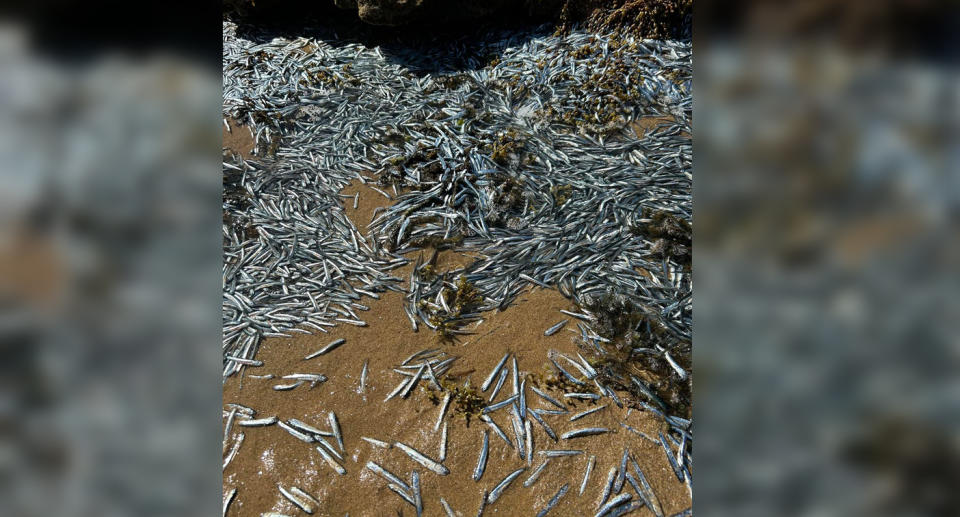A shocking sight was seen over the weekend along Australia’s southeast coast, as thousands of dead fish were stretched out along the beach.
According to one local woman, she had never seen anything like this before.
She was visiting Point Addis, which is near Bells Beach, when she came across the fish. Other beachgoers also reportedly saw the same thing.
According to the woman, millions of fish were off the coast. She said that the water was incredibly thick as the fish swam.
Another witness noted that the beach at Jan Juc was stretched out to the entire area. This beach is about 13 kilometers away from Bells.
The woman asked if anyone knows why so many fish were suddenly washed up on the beach.
Many people believe that the sudden appearance of the fish was caused by a combination of factors such as low tide and warm water. Initially, the fish were believed to be sardines or garfish, but a few said that they were anchovies, which are usually targeted by bigger fish.
Some believe that the sudden appearance of the fish was caused by a combination of factors such as low tide and warm water. One person said that the southern anchovies died due to stress, while another noted that large schools of tuna were in the area at the moment.
Another person explained that the fish usually swim near sea shores during high tides. However, due to low tide, they were unable to return to the ocean, which is what led to their deaths. According to Shane Roberts from PIRSA, hot weather and low tide can kill thousands of fish in a short period of time.
According to Ian Bennetts, an associate professor at the Queensland University of Technology, anchovies are known to get caught in gutters during low tide. On a hot day in Australia, the oxygen level in the water quickly decreases, which kills the fish.
He said that the anchovies found near Bells Beach appeared healthy. He also noted that they moved into shallow water to avoid getting eaten by predators. If the mass of fish was caused by low oxygen levels, then a diverse group of species might have appeared.

